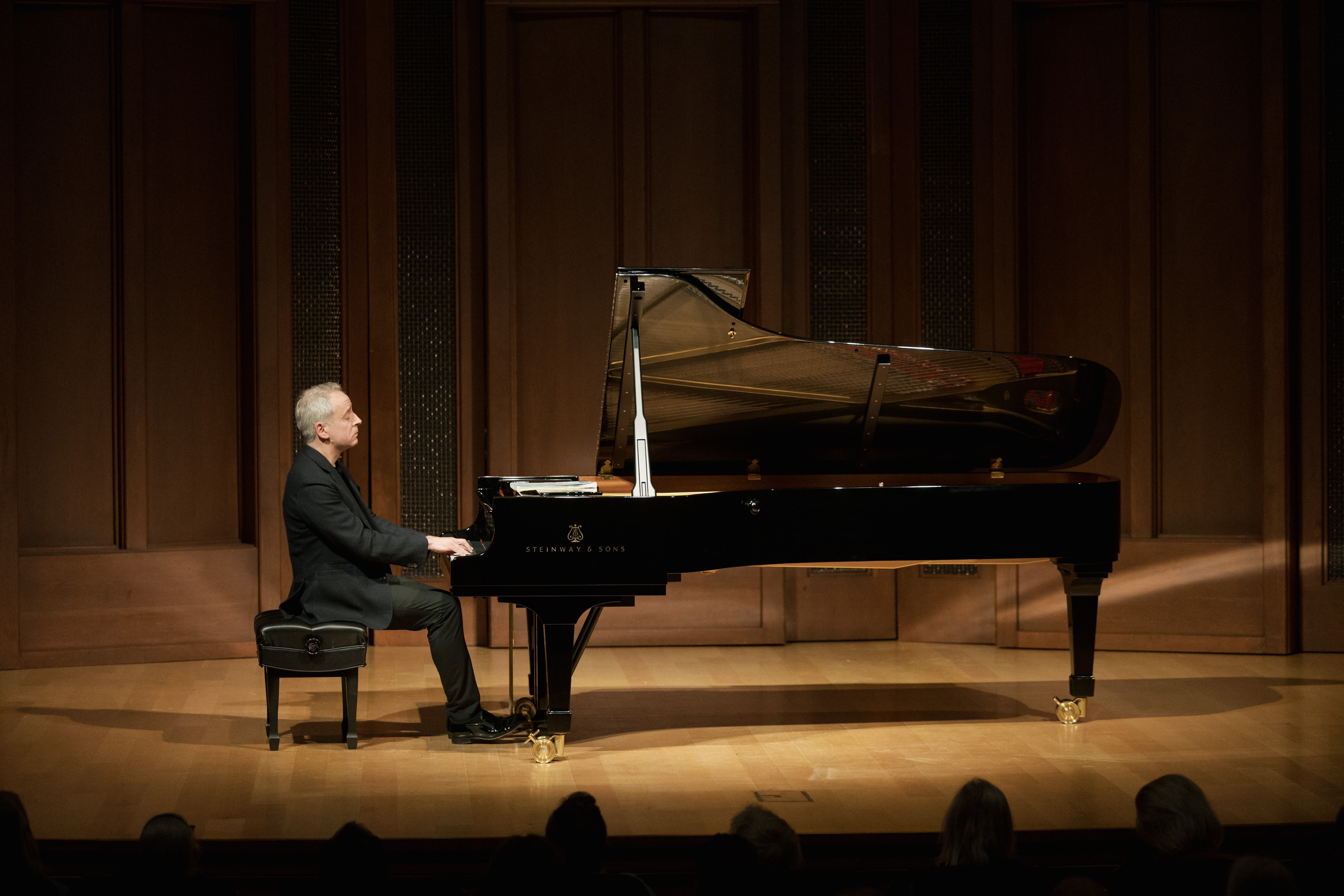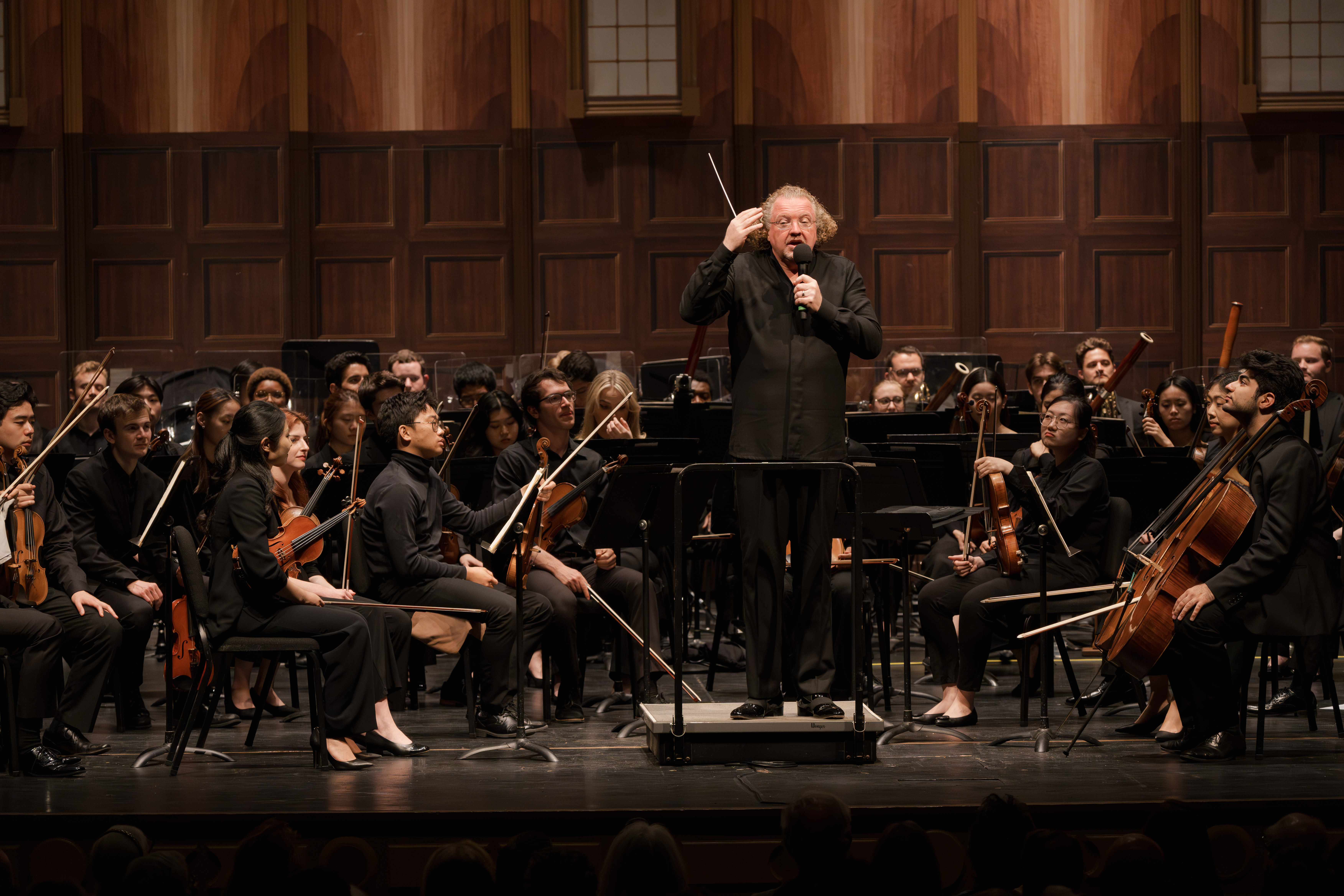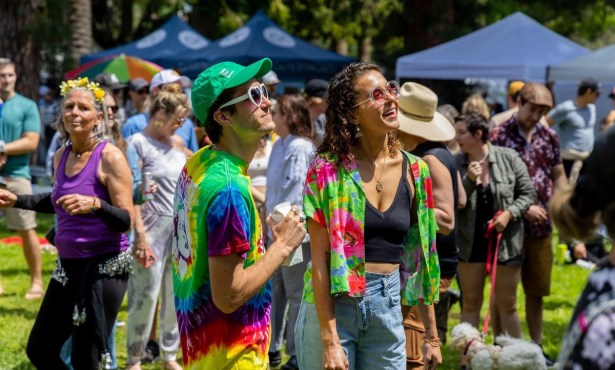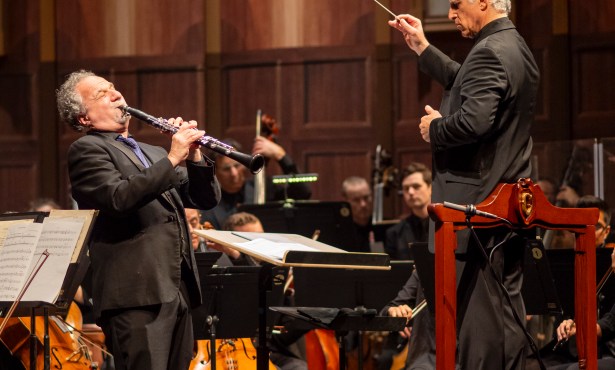Music Academy Brought Timely Berlioz, Denk’s Sublime Bach to Santa Barbara for Solstice
Review | Big Week for Orchestral Berlioz and Jeremy Denk’s Masterful Take on Bach

To twist the opening line of Garrison Keillor’s “Lake Wobegon” radio feature, it was decidedly not just another quiet week with the Music Academy. Topping the list of Academy concerts in the past week — and joining the list of the profound classical events in Santa Barbara all year — was Jeremy Denk’s sublime performance of five out of the six Bach partitas for keyboard. It was a seriously deep musical offering, leavened by the wit and energy of Bach’s writing and Denk’s predictably charismatic verbal program notes.
A bigger splash of sound came in the form of the first of several Academy festival orchestra concerts, boldly conducted by Stéphane Denève. The all-Berlioz affair made for a surprisingly Summer Solstice-compatible Saturday night soiree at the Granada Theatre.
Denk, surfing in the upper echelon of internationally renowned pianists and an Academy faculty member in recent years, has made his annual recitals in Hahn Hall one of the hotter tickets on the Academy’s concert calendar, not to mention the broader 805 classical calendar. He often brings to bear a specific programmatic angle, and this year’s Bach partita focus proved to be an especially rewarding and artist-revealing world unto itself.
With his usual flair, Denk spoke from the stage in thoughtful, down-to-earth ways, introducing the Partitas as “a set of dances, like a well-crafted DJ set.”
Over the past decade, Denk has thankfully become a familiar figure in town, gracing local stages such as Campbell Hall and the Ojai Music Festival (where he was director in 2014 and delivered a powerful all-Ligeti recital there). Denk has his own special stage manner, with a little boyish skip in his step to and from the piano perch. While in performance, he has a tendency to peer out at the audience, as if sharing his thoughts (which he is, in fact, doing) and sometimes appears open-mouthed, as if singing to or speaking with the score.
He had much to sing and talk about with Bach’s lofty, humane partitas oeuvre. Each partita was given its due persona, with such highlights as the proto-swinging vigor of No. 2’s capriccio and elastic flourish in the courante of No. 3. Post-intermission opened with the bright, witty and quirky good cheer of No. 5 and the moving solemnity of the final partita, No. 6, with its deeply-felt sarabande and richly-wrought gigue to cap off this profound Bach book.
Denk’s is not a dry or fussy Bach, but an interpretation invested with degrees of emotional shading and fire — but never by excessive degrees. The slow sarabande movements benefit from a vulnerable delicacy, while faster movements are propulsive and inflected with dynamic intensity. Interactive, contrapuntal voices find their proper place and weight, with clarity in the discourse. In short, this Denk-Bach encounter was an unforgettable evening.

Birth of an Orchestra
Each year at the Music Academy, a fresh ensemble of fresh young faces appear on the Granada stage, essentially creating a brand new orchestra. For many years, Larry Rachleff was the conductor responsible for “getting the orchestra ready for the summer,” as he told me in an interview, years back. Rachleff passed away last August.
Last Saturday, the conducting honors went to Denève, the French-born maestro who presided over a night of Berlioz, in a case of programming synchronicity — planned or otherwise — arriving at the end of a day marked by Santa Barbara’s legendary Summer Solstice parade. The city-endorsed public bacchanalian revelry of Solstice was capped off by Berlioz’ infamous Symphonie Fantastique, reputedly inspired by opium/dream-tripping and unrequited love — which can also induce distorted mind states. In today’s parlance and pharmaceutical status, one might call the Fantastique — especially its wild two final movements — an acid trip orchestral outing.
As we’ve come to expect from the Academy Festival Orchestra, the group produced a flowing and glorious sound beyond its years, with Denève’s expert guidance. As Denève enthused, “classical music has a future, and it is right in front of you on this stage.”
Saturday’s first half featured another timely Berlioz piece, in the form of the song cycle Les nuits d’ete (Summer Nights), with the estimable and Grammy-winning mezzo-soprano Sasha Cooke (an Academy alum, now co-leading the Music Academy voice department) providing a controlled and rapturous vocal presence afront the ace young orchestra.
In all, Academy Festival Orchestra’s series kick-off impressed on musical fronts, with the added attraction of a “bring on the summer” attitude in the mix.
For information about all of the Music Academy Summer Festival shows still to come, see musicacademy.org.




You must be logged in to post a comment.